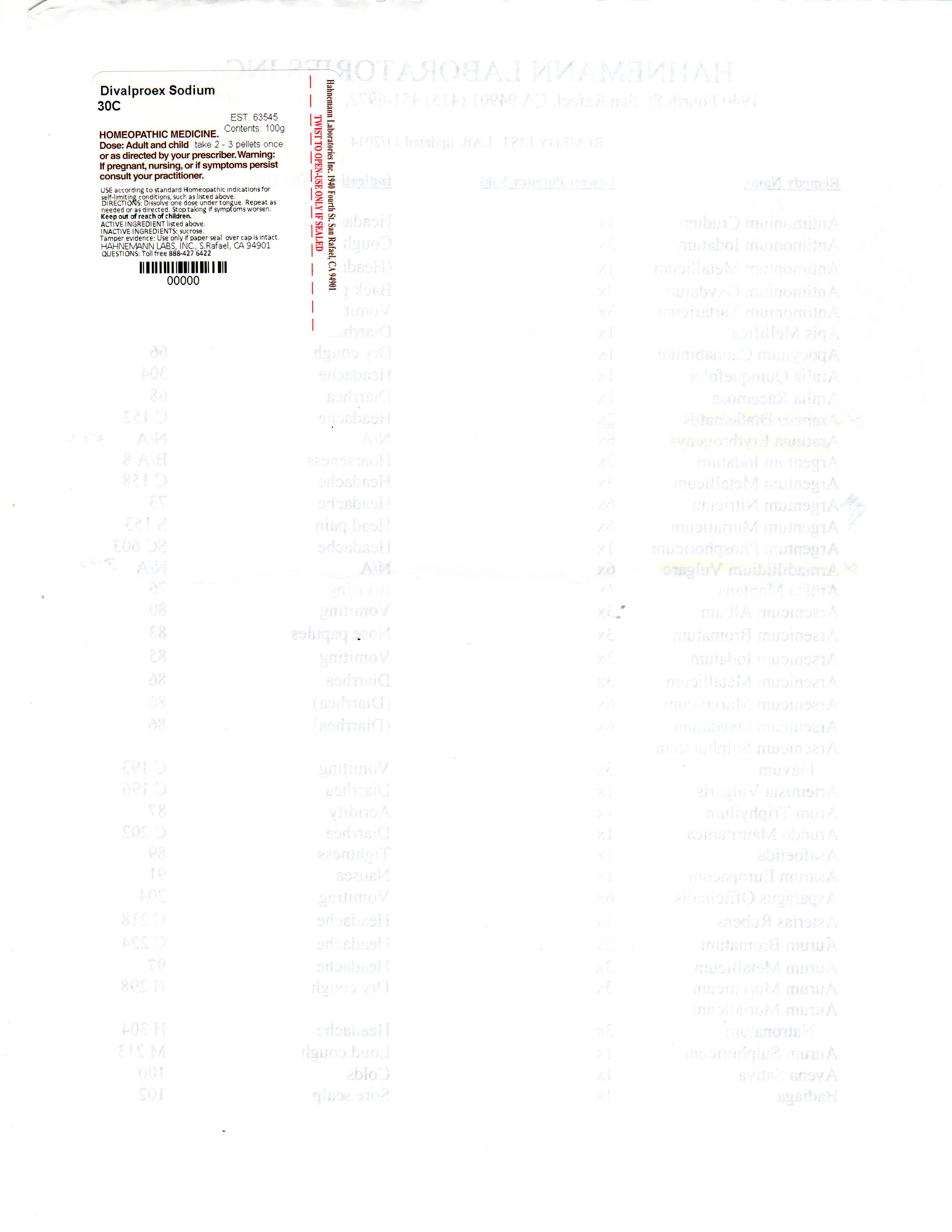Divalproex Sodium Pellet while Breastfeeding

Is Divalproex Sodium Pellet usage safe while breastfeeding? If a lactating mother is using it can there be any effect on growth or development of infant?

Note: Due to high dilution of active ingredients in homeopathic medicines most homeopathic medicines are safe while breastfeeding.
Divalproex Sodium Pellet Breastfeeding Analsys
Valproic acid while Breastfeeding
SafeCAS Number: 99-66-1
It is excreted in breast milk in clinically non-significant amount without problems in the short or long term in infants whose mothers were treated. Plasma levels of these infants were undetectable or very low. Cognitive development did not suffer any alteration. An infant was presented with thrombocytopenic purpura and anemia who recovered after removing valproate in the mother. However, doubts were raised on whether it was instead a post-viral reaction that led to idiopathic thrombocytopenic purpura. The administration of valproic acid does not affect prolactin levels. The American Academy of Pediatrics rates it as usual compatible with breastfeeding medication.WHO List of Essential Medicines 2002: compatible with breastfeeding.
Divalproex Sodium Pellet Breastfeeding Analsys - 2
Valproic acid while Breastfeeding
CAS Number: 99-66-1
Breastfeeding during valproic acid monotherapy does not appear to adversely affect infant growth or development, and breastfed infants had higher IQs and enhanced verbal abilities than nonbreastfed infants at 6 years of age in one study.[1] If valproic acid is required by the mother, it is not necessarily a reason to discontinue breastfeeding. Because of the low levels of valproic acid in breastmilk and infant serum, no definite adverse reactions to valproic acid during breastfeeding have been reported. Theoretically, breastfed infants are at risk for valproic acid-induced hepatotoxicity, so infants should be monitored for jaundice and other signs of liver damage during maternal therapy. A questionable case of thrombocytopenia has been reported, so monitor the infant for unusual bruising or bleeding. One author recommends monitoring infant serum valproate levels, platelets and liver enzymes during therapy.[1] Combination therapy with sedating anticonvulsants or psychotropics may result in infant sedation or withdrawal reactions.
I already used Divalproex Sodium Pellet and meanwhile I breastfed my baby should I be concerned?
Homeopathic medicines usually do not cause harmful effects on breastfed babies. Divalproex Sodium Pellet is a homeopathic medicine and if your baby does not have any abnormal symptoms then there is nothing to worry about. Some homeopathic medicines contain alcohol (ethanol) and such homeopathic medicines in high dosage can have bad effect on development of baby.
I am nursing mother and my doctor has suggested me to use Divalproex Sodium Pellet, is it safe?
Homeopathic medicines are usually safe in breastfeeding and if Divalproex Sodium Pellet has been recommended by doctor then there should be no doubt about its usage in breastfeeding.
If I am using Divalproex Sodium Pellet, will my baby need extra monitoring?
Not really.
Who can I talk to if I have questions about usage of Divalproex Sodium Pellet in breastfeeding?
US
National Womens Health and Breastfeeding Helpline: 800-994-9662 (TDD 888-220-5446) 9 a.m. and 6 p.m. ET, Monday through Friday
UK
National Breastfeeding Helpline: 0300-100-0212 9.30am to 9.30pm, daily
Association of Breastfeeding Mothers: 0300-330-5453
La Leche League: 0345-120-2918
The Breastfeeding Network supporter line in Bengali and Sylheti: 0300-456-2421
National Childbirth Trust (NCT): 0300-330-0700
Australia
National Breastfeeding Helpline: 1800-686-268 24 hours a day, 7 days a week
Canada
Telehealth Ontario for breastfeeding: 1-866-797-0000 24 hours a day, 7 days a week
